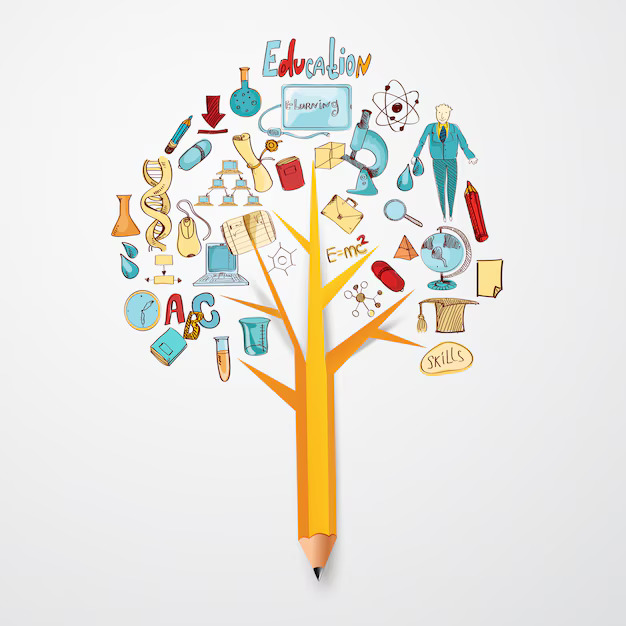
Education is often regarded as the cornerstone of a successful life, serving as the foundation upon which individuals build their understanding of the world and develop critical thinking skills. It plays a crucial role in student development, shaping not only academic abilities but also social, emotional, and personal growth. Education equips students with essential skills, fosters resilience and adaptability, and prepares them to face future challenges. While there are various paths to success, education remains one of the most reliable avenues for personal and professional advancement, providing opportunities for social mobility and contributing to overall development.
1. Building Knowledge and Skills
Education equips individuals with the knowledge and skills necessary to navigate the complexities of life. It goes beyond learning to read, write, and solve mathematical problems; education fosters critical thinking, problem-solving, and analytical skills. These competencies are essential for making informed decisions, whether in personal finances, health, or career choices.
A well-rounded education introduces students to a variety of subjects, from science and mathematics to arts and humanities. This diverse knowledge base enables individuals to understand and engage with different perspectives, fostering a more comprehensive worldview. The skills acquired through education—such as communication, teamwork, and adaptability—are invaluable in the workplace, where collaboration and effective communication are often key to success.
2. Fostering Personal Growth and Confidence
Education plays a vital role in personal development. It helps individuals understand themselves better, identify their strengths and weaknesses, and set realistic goals for their future. The educational journey is not just about acquiring knowledge but also about discovering one’s passions and potential. Through the process of learning, students develop self-discipline, resilience, and a growth mindset—qualities that are essential for overcoming life’s challenges.
Education fosters self-confidence by providing opportunities to achieve academic and extracurricular milestones. Engaging in workshops and extracurricular activities helps students build a sense of accomplishment and self-worth. This confidence extends beyond the classroom, empowering them to take on new challenges, seize opportunities, and pursue their ambitions with determination. Education instills a belief that with effort and perseverance, success is achievable, regardless of the obstacles they face.
3. Creating Opportunities for Social Mobility
Education is often seen as a ladder to social mobility. It provides individuals from all backgrounds with the opportunity to improve their socioeconomic status. In many societies, access to quality education is a critical factor in reducing inequality and breaking the cycle of poverty. A good education opens doors to better job prospects, higher earnings, and improved quality of life.
Higher education, in particular, is a powerful tool for social mobility. Graduates from colleges and universities are more likely to secure well-paying jobs and have access to a broader range of career options. In addition, education fosters a meritocratic society where individuals can advance based on their talents and efforts rather than their social or economic background. This not only benefits the individual but also contributes to the overall development and stability of society.
4. Driving Innovation and Economic Growth
Education is the engine that drives innovation and economic growth. A well-educated workforce is essential for a country’s economic development and competitiveness in the global market. As technology and industries evolve, there is a growing demand for skilled professionals who can adapt to new challenges and drive innovation. Education provides the foundation for a skilled and knowledgeable workforce capable of advancing science, technology, and business.
Countries that invest in education often experience higher economic growth rates, as educated citizens are more likely to contribute positively to the economy. They are better equipped to create new products, services, and solutions that address societal needs. In this way, education not only benefits individuals but also has a profound impact on the economic prosperity and development of nations.
5. Promoting Civic Engagement and Social Responsibility
Education also plays a crucial role in fostering civic engagement and social responsibility. An educated populace is better informed about their rights and responsibilities as citizens, leading to a more active and engaged society. Education encourages individuals to participate in democratic processes, advocate for social justice, and contribute to community development.
Furthermore, education promotes ethical values, empathy, and a sense of responsibility towards others. It encourages individuals to think beyond their personal interests and consider the broader implications of their actions on society and the environment. By cultivating a sense of social responsibility, education helps build stronger, more cohesive communities that work towards the common good.
Conclusion
Success can be defined in various ways and achieved through different paths, but education is a fundamental factor in shaping a successful life. At a boarding school in Udaipur, education builds the knowledge and skills essential for both professional and personal growth, fosters confidence and self-development, and opens doors to social mobility. Such institutions also promote innovation, economic growth, and civic engagement, contributing to a more informed and active society. Education at a boarding school in Udaipur is more than just a stepping stone; it is a lifelong journey that equips students with the tools and mindset needed to thrive in an ever-evolving world.







